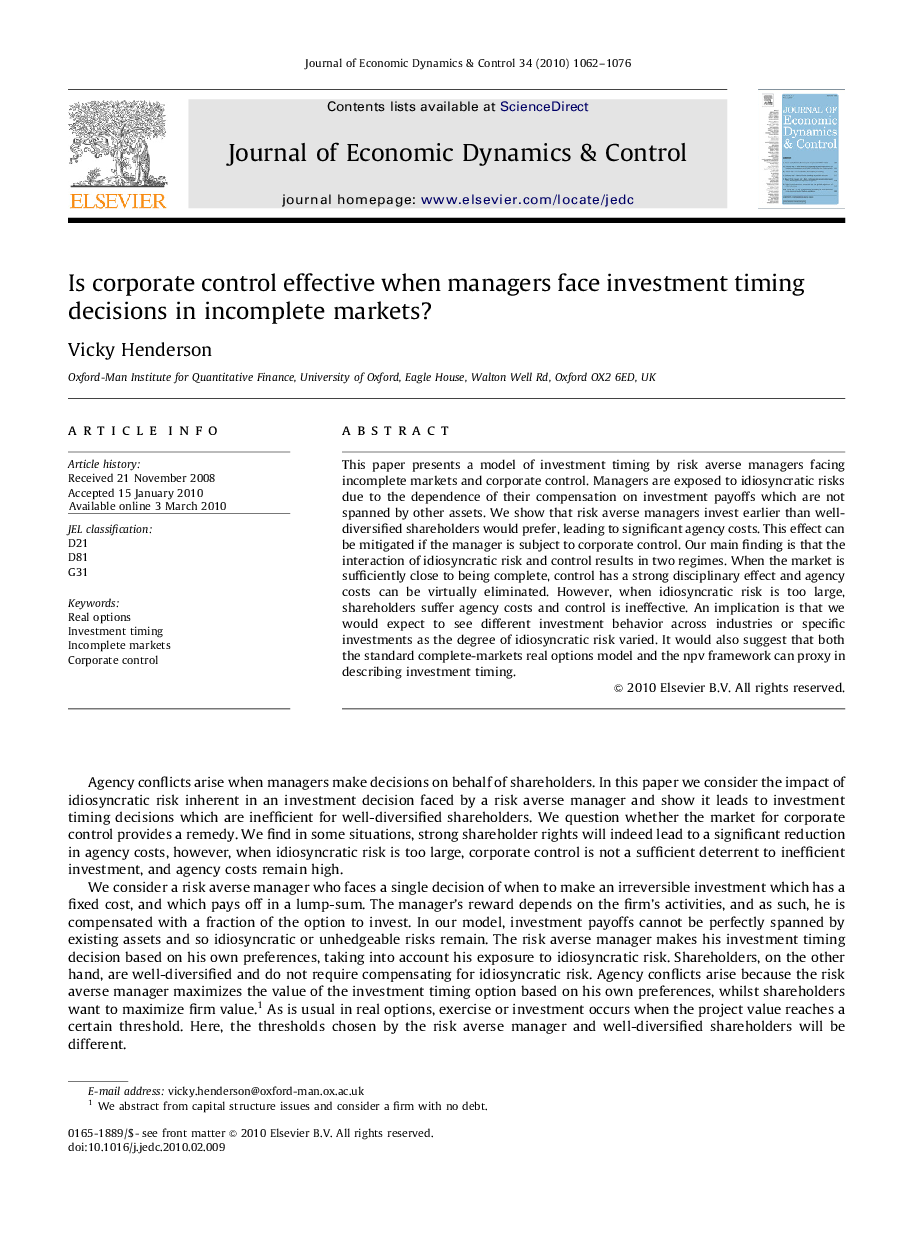| Article ID | Journal | Published Year | Pages | File Type |
|---|---|---|---|---|
| 5098911 | Journal of Economic Dynamics and Control | 2010 | 15 Pages |
Abstract
This paper presents a model of investment timing by risk averse managers facing incomplete markets and corporate control. Managers are exposed to idiosyncratic risks due to the dependence of their compensation on investment payoffs which are not spanned by other assets. We show that risk averse managers invest earlier than well-diversified shareholders would prefer, leading to significant agency costs. This effect can be mitigated if the manager is subject to corporate control. Our main finding is that the interaction of idiosyncratic risk and control results in two regimes. When the market is sufficiently close to being complete, control has a strong disciplinary effect and agency costs can be virtually eliminated. However, when idiosyncratic risk is too large, shareholders suffer agency costs and control is ineffective. An implication is that we would expect to see different investment behavior across industries or specific investments as the degree of idiosyncratic risk varied. It would also suggest that both the standard complete-markets real options model and the npv framework can proxy in describing investment timing.
Related Topics
Physical Sciences and Engineering
Mathematics
Control and Optimization
Authors
Vicky Henderson,
